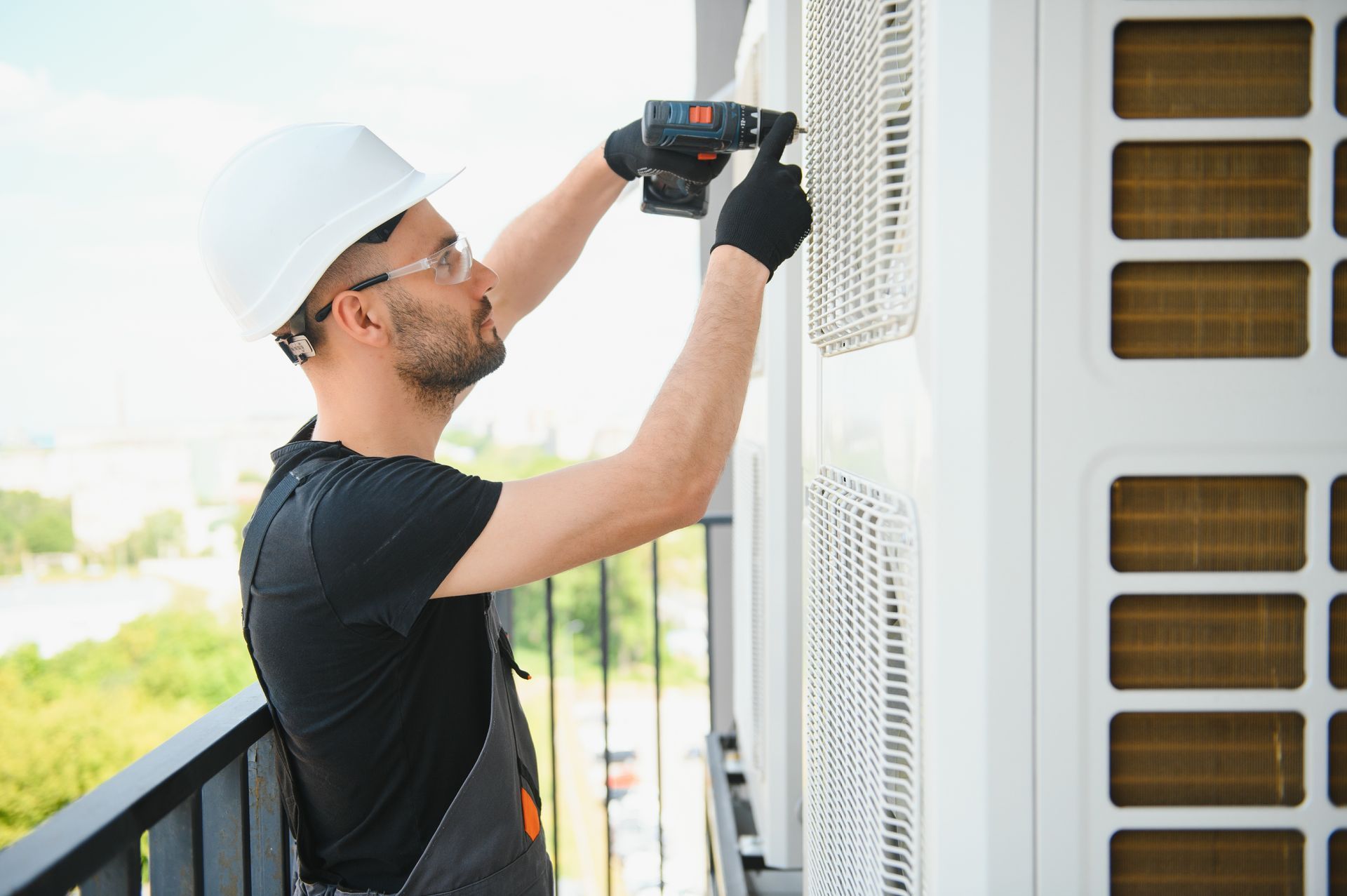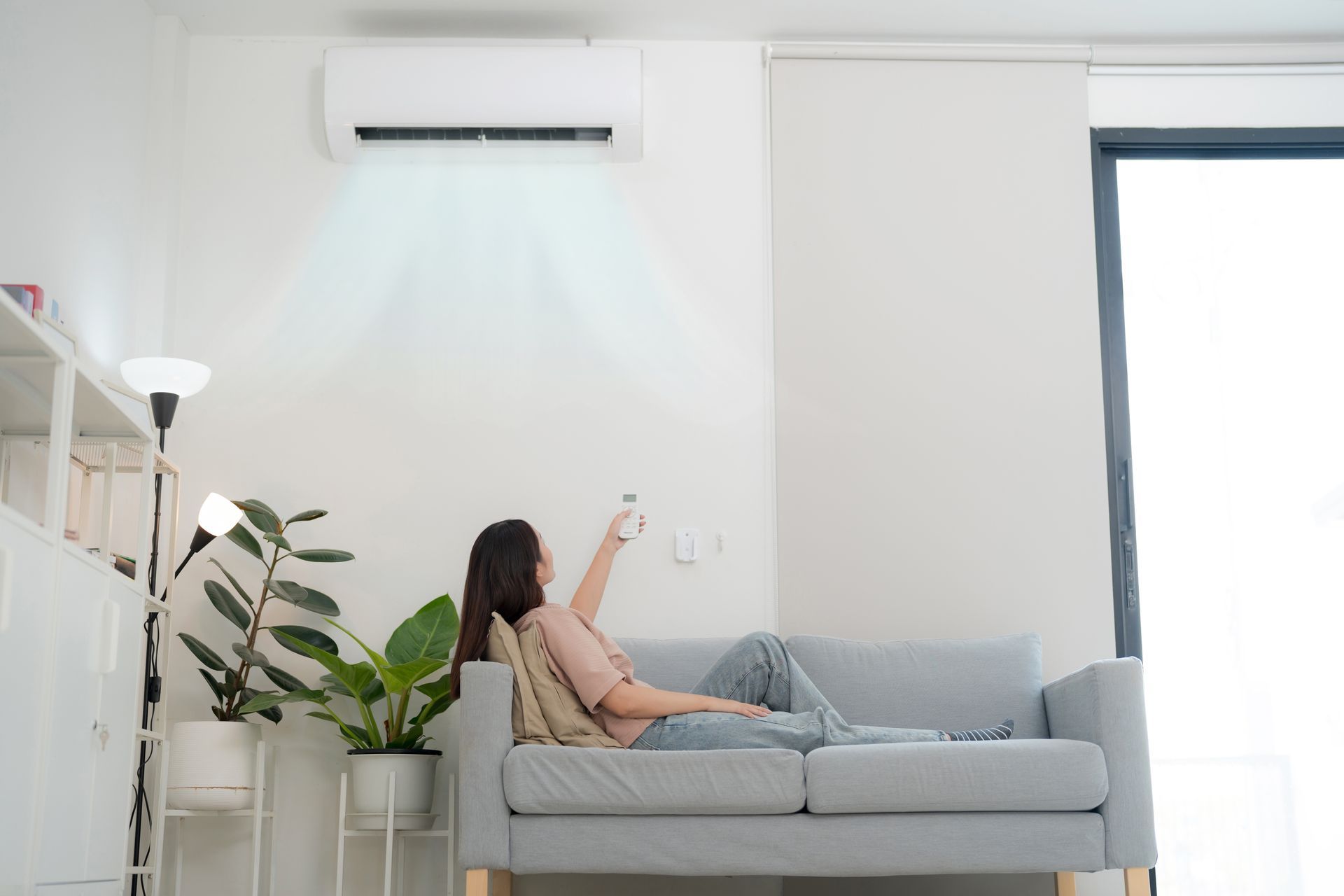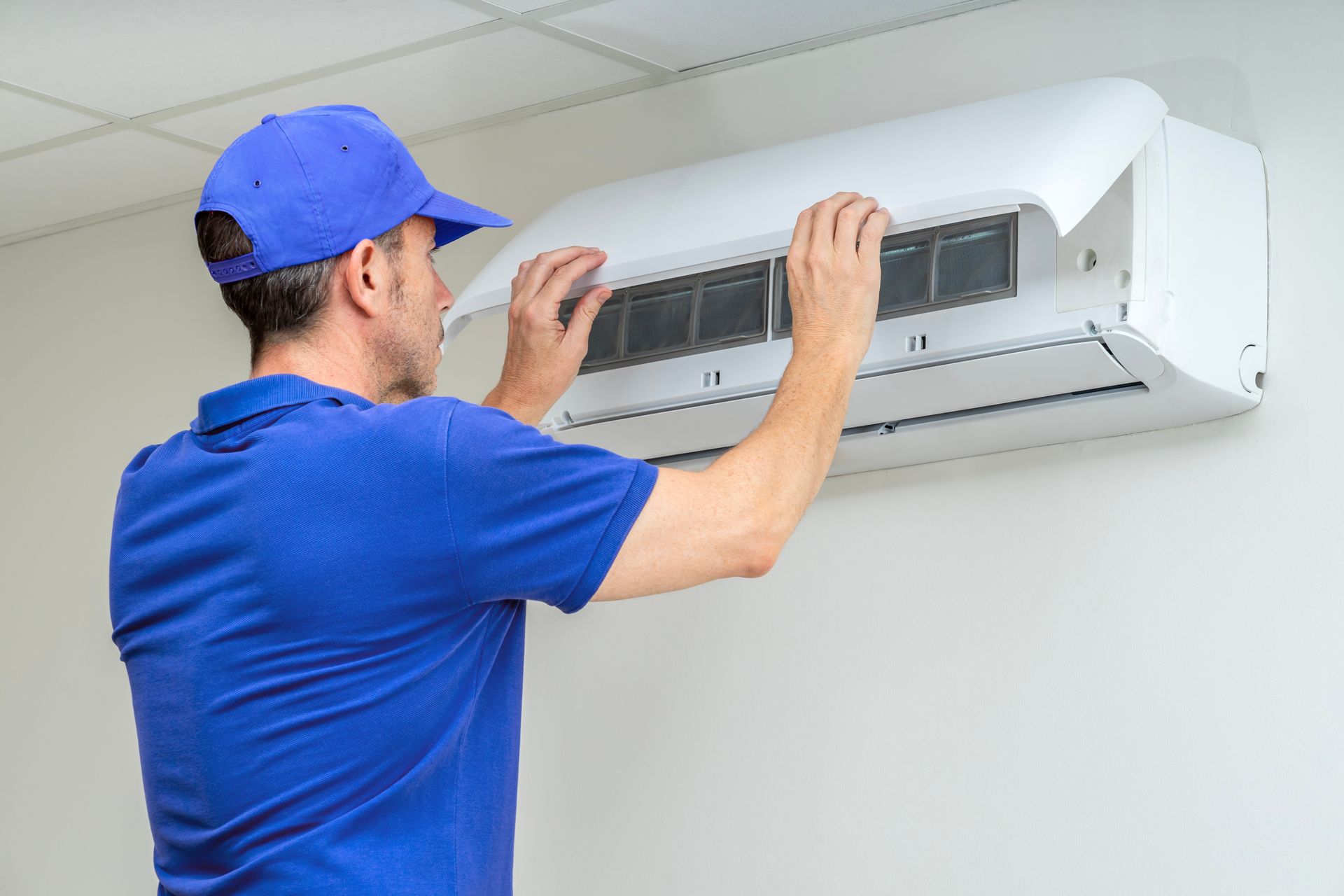How to Choose the Best HVAC System for Your Home

Keeping your HVAC system in top shape is essential for staying comfortable and saving energy bills throughout the year. Regular maintenance can improve efficiency, extend the life of your system, and prevent costly repairs. Here are the top 10 HVAC maintenance tips to help you maintain year-round efficiency.
What Are the Different Types of HVAC Systems?
Before you choose an HVAC system, it's helpful to know the different types available:
- Split Systems: These are the most common, with separate units for heating and cooling. The air conditioner cools in the summer, and a furnace or heat pump provides heat in the winter.
- Heat pumps: They work by transferring heat from one place to another, which means they can heat and cool your home.
- Ductless Systems: Also called mini-split systems, these are ideal for homes without ductwork. They offer individual temperature control in each room.
- Packaged Systems: These units combine heating and cooling in one unit, usually placed outside. They are a space-saving choice for smaller homes.
Each type has pros and cons, so consider your home's layout, size, and existing ductwork.
How Big Should My HVAC System Be?
Size matters when it comes to HVAC systems. A system that's too small won't keep your home comfortable, while one that's too large will cycle on and off too quickly, wasting energy and causing wear and tear. To find the right size:
- Calculate the Square Footage: Measure each room's length and width, then add up the total square footage of your home.
- Consider Climate and Insulation: If you live in a very hot or cold area or your home is poorly insulated, you may need a more extensive system.
- Get Professional Help: An HVAC contractor can perform a load calculation, which considers all factors to determine the best system size for your home.
How Energy Efficient Should My HVAC System Be?
Energy efficiency can save you money on energy bills and help the environment. When choosing an HVAC system, look for the following:
- SEER Rating: The Seasonal Energy Efficiency Ratio (SEER) measures cooling efficiency. The higher the SEER, the more efficient the unit. Aim for a SEER rating of at least 14-16.
- AFUE Rating: The Annual Fuel Utilization Efficiency (AFUE) measures heating efficiency. A higher AFUE rating means more efficient heating.
- ENERGY STAR® Label: HVAC systems with this label meet the EPA's energy efficiency guidelines, making them a reliable choice for saving energy.
What Features Should I Look For?
Modern HVAC systems have various features that can improve comfort, efficiency, and convenience. Consider these features:
- Programmable Thermostats: These allow you to set specific temperatures for different times of the day, helping you save energy.
- Zoning Systems: Zoning divides your home into areas that can be heated or cooled individually, so you save energy on rooms you're not using.
- Air Quality Features: Some systems include air purifiers, humidifiers, or dehumidifiers, which can improve your home's indoor air quality.
These features can help you customize your comfort and reduce energy costs
Should I Consider Installation and Maintenance Costs?
Yes, installation and maintenance costs are essential. While a cheaper HVAC system might save you money upfront, it could cost more in the long run if it's not energy efficient or needs frequent repairs. Here's what to keep in mind:
- Installation Costs: Make sure you factor in the installation cost, especially if new ductwork is needed. Getting quotes from multiple contractors can help you find a fair price.
- Maintenance Costs: Regular maintenance is vital to running your HVAC system efficiently. Look for systems that are easy to maintain or consider a service plan with a reputable HVAC company.
- Warranty: Check the warranty offered with the system. A more extended warranty can give you peace of mind and save you money on repairs.
How Do I Choose the Right HVAC Contractor?
The contractor you choose is just as important as the system itself. A skilled contractor can ensure your system is installed correctly and runs efficiently. Here's what to look for:
- Experience and Certification: Look for a contractor who is licensed, insured, and experienced with your HVAC system.
- Customer Reviews: Check reviews and ask for references. A contractor with good reviews and satisfied customers is a safer choice.
- Detailed Estimate: A reputable contractor should provide a detailed estimate, including the system, installation, and additional costs.
How Can I Finance My New HVAC System?
HVAC systems can be expensive, so many homeowners look for financing options. Here are a few ways to make your purchase more affordable:
- HVAC Financing Plans: Some contractors offer financing plans that let you pay for your system over time.
- Credit Cards: If you have a credit card with a low interest rate, it may be a convenient way to finance your HVAC system.
- Energy Efficiency Rebates: Check for local or federal rebates and incentives for energy-efficient systems, which can help offset costs.
What Else Should I Keep in Mind?
When choosing an HVAC system, consider your future home plans. Investing in a high-quality, energy-efficient system makes sense if you plan to stay long-term, but a more straightforward, affordable system is better if you plan to move soon.
9. Regularly Testing the System
Choosing the best HVAC system for your home doesn't have to be complicated. You can find a system that meets your needs and keeps your home comfortable by considering the type, size, efficiency, features, and installation costs.
Ready to make your home comfortable year-round? Contact Old School Cooling today for expert advice and reliable HVAC installation!
Disclaimer: The information on this website and blog is for general informational purposes only and is not professional advice. We make no guarantees of accuracy or completeness. We disclaim all liability for errors, omissions, or reliance on this content. Always consult a qualified professional for specific guidance.
Search Blog
Recent Posts

Contact Us
Contact Us
We will get back to you as soon as possible.
Please try again later.
Quick Links
Our Services
Contact Info
2540 S. Military Trail, West Palm, Fl, 33415
Working Hours
Open 24/7
All Rights Reserved.
Website Designed & Managed by Oamii.



